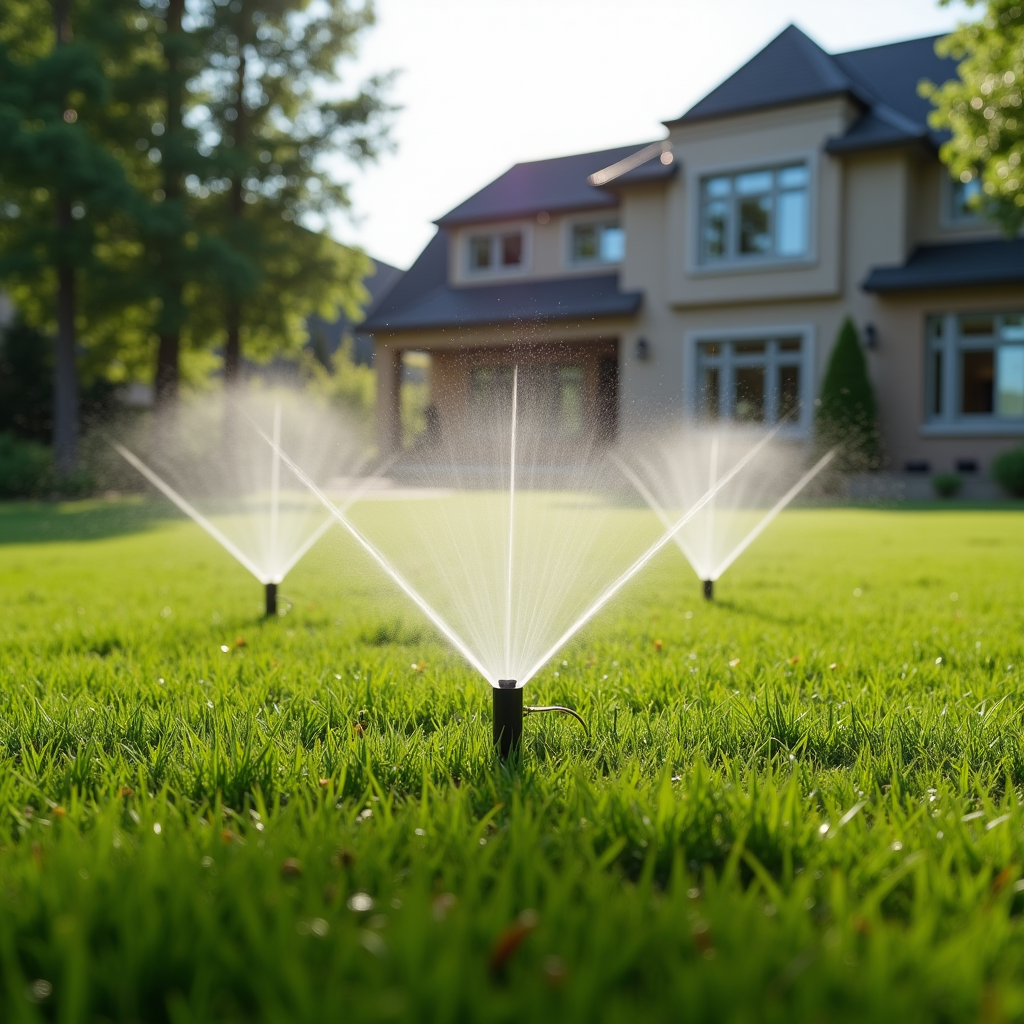Introduction
Maintaining a beautiful lawn can be both rewarding and challenging. However, misinformation abounds in the world of lawn care, leading many homeowners astray. In this https://www.ramirezlandl.com/about article, we’ll delve deep into Lawn Care Myths Debunked: What You Need to Know, separating fact from fiction so you can cultivate a lush green space with confidence. From common misconceptions about watering schedules to fertilization practices, our aim is to empower you with the knowledge necessary for successful lawn maintenance.

Lawn Care Myths Debunked: What You Need to Know
When it comes to lawn care, many myths have been passed down through generations. These misunderstandings can often lead to ineffective practices that not only waste your time but can also harm your lawn. Here’s a closer look at some of the most prevalent lawn care myths and the truths behind them.
Myth #1: More Water Equals a Healthier Lawn
The Truth About Watering Your Lawn
It’s easy to assume that more water means a healthier lawn. However, overwatering can lead to root rot and fungal diseases.
- Ideal Watering Schedule: Most lawns thrive on about 1 inch of water per week. Signs of Overwatering: Look out for yellowing grass or soggy soil.
In reality, it's important to water deeply but less frequently rather than lightly and often.
Myth #2: Grass Grows Faster if You Cut It Short
Why Cutting Grass Short Is Counterproductive
Many believe that mowing grass as short as possible will reduce the frequency of cuts. This couldn’t be further from the truth!
- Optimal Height: Most grass types should be kept at 2.5 - 4 inches in height. Benefits of Taller Grass: Taller grass shades roots, retains moisture, and crowds out weeds.
Cutting grass too short stresses it out, making it more susceptible to disease and pests.
Myth #3: Fertilizing Before Rain Guarantees Absorption
Understanding Soil Absorption Rates
Some homeowners think that rain will wash fertilizers into the soil effectively. However:
- Timing Matters: Fertilizer needs time to break down; heavy rain can wash it away before absorption.
It’s best practice to apply fertilizer when dry weather is expected for a few days.
Myth #4: All Weeds Are Bad for Your Lawn
The Case for Some Weeds
Not all weeds are bad! Certain weeds can actually benefit your lawn by providing nutrients or acting as ground cover.
- Examples of Beneficial Weeds: Clover fixes nitrogen in the soil. Dandelions have deep roots that improve soil aeration.
Understanding this can help you make informed decisions about weed management.
Myth #5: You Only Need To Aerate Once a Year
When Should You Aerate?
Aeration is essential for reducing soil compaction and promoting healthy growth. However, many believe annual aeration is sufficient. The truth is:
- Frequency Depends on Use: Lawns that receive heavy foot traffic may require aeration two or even three times a year.
Regular assessment of your lawn's condition will dictate how often you should aerate.
The Importance of Lawn Mowing Techniques
Mowing isn't just about cutting grass; it's an art form!
Proper Mowing Height and Frequency
Keeping your grass at an appropriate height enhances its resilience against drought and pests.
- Mow once a week during peak growing seasons. Adjust mower height based on season changes.
Using Sharp Blades for Better Cuts
Did you know dull blades tear rather than cut? This leads to ragged edges that make your grass vulnerable!
- Check mower blades regularly. Sharpen before each season starts for optimal performance.
Soil Health Matters in Lawn Care
Healthy soil equals a healthy lawn! But what does “healthy” really mean?
Understanding Soil Composition
Soil consists of minerals, organic matter, air, and water.
- Test your soil regularly. Amend as needed with compost or fertilizers based on test results.
pH Levels Play A Role in Grass Growth
Did you know that different types of grasses prefer different pH levels?
| Grass Type | Ideal pH Level | |------------------|----------------| | Kentucky Bluegrass| 6.0 - 7.0 | | Bermuda Grass | 5.5 - 7.0 |
Maintaining proper pH ensures nutrients are available for uptake by roots!
Common Pest Control Misconceptions in Lawn Care
Pest control is critical when keeping your lawn healthy and beautiful!
Natural vs Chemical Solutions
Many people think chemical solutions are always better than natural ones; however:
- Natural alternatives like neem oil can be effective against several pests without harming beneficial insects.
Knowledge about pest life cycles helps choose the right treatment method at the right time!
Insecticides Kill All Bugs—Right?
Not true! While insecticides target specific pests, they also kill beneficial insects such as ladybugs and bees!
Tip: Always read labels carefully and consider integrated pest management strategies that minimize harm.
FAQ Section
What’s the best time to water my lawn?
The best time is early morning or late afternoon when temperatures are cooler, reducing evaporation rates.
How often should I mow my lawn?
Generally once a week during growing seasons; however, adjust based on growth rate due to weather conditions.
Should I collect clippings after mowing?
Leaving clippings returns nutrients back into the soil unless they’re too long; then it's better to collect them.
Is it necessary to dethatch my lawn?
If thatch exceeds half an inch thick, dethatching may be necessary for optimal health!
Can I manage my lawn organically?
Absolutely! Organic fertilizers and pest controls are widely available today—just do your research!
li22/ol1/hr6hr6/##
Conclusion
Lawn care doesn’t need to be shrouded in mystery or myth! By debunking common misconceptions surrounding lawn care, we equip ourselves with reliable knowledge leading us toward healthier lawns—all while enjoying the process along the way! Remember that every yard is unique; understanding its specific needs will ensure thriving growth season after season!
Armed with these insights from Lawn Care Myths Debunked: What You Need to Know, you're ready to tackle any challenges head-on while nurturing an enviable green space right outside your door! Happy gardening!